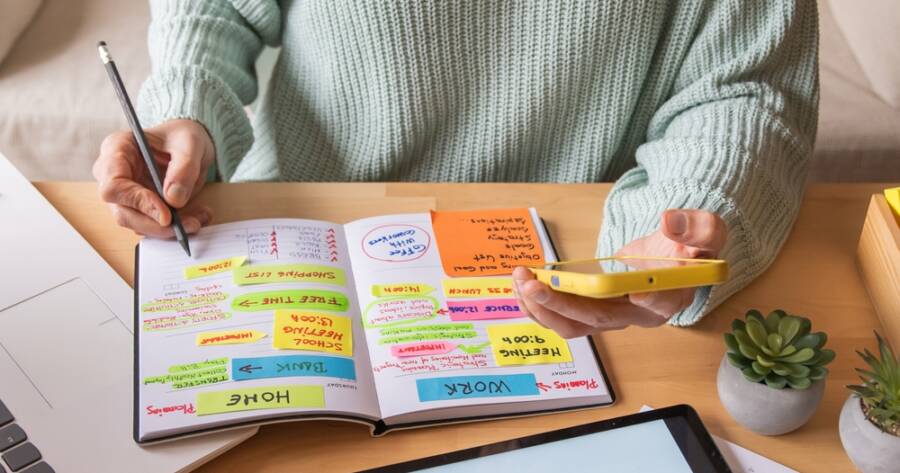Do you ever feel like there aren’t enough hours in the day to soak up all you want to learn? You’re not alone. Lifelong learners constantly face the challenge of balancing desires with the clock. Understanding how to manage time efficiently can transform your learning journey. Let’s explore strategies that could make mastering new skills feel less like a race against time and more like an exciting exploration.
Prioritize With Purpose
Creating a list of priorities can change how you approach your day. Consider making a plan that defines what is crucial and what can wait. Decide which subjects or skills deserve immediate attention and which ones can be better explored later. This approach can help you allocate time wisely, potentially allowing you to focus deeply on what’s most impactful.
When your priorities are in place, you can find your stress levels decreasing. Stress can often stem from trying to do everything at once. A focused approach could enable clearer thinking, making it easier to immerse yourself in the learning process. It may also allow you to celebrate small victories as you tick off achieved goals.
Block Consistent Time for Learning
Carving out specific blocks of time for learning can transform how you study. If you consistently dedicate a particular time each day, you may find it becomes a habit. Over time, this habit might lead to increased efficiency and greater retention of new information.
By consistently giving your learning a dedicated timeslot, you offer yourself the chance to dive deeper. You might then discover that distractions are minimized, and your study sessions become more productive. Boundaries around your learning time may help reinforce a sense of commitment to your educational pursuits.
Employ the Pomodoro Technique
The Pomodoro Technique can be your new best friend in managing time effectively. Start by setting a timer for 25 minutes and focusing solely on learning until the timer rings. After this session, give yourself a five-minute break. This cycle can be repeated, potentially improving focus and minimizing burnout.
Such structured rest periods encourage relaxation and can prevent burnout. Many lifelong learners may find that their concentration improves with these micro-breaks. The technique could also foster a sense of accomplishment as each session is completed. Overcoming overwhelming tasks might become more manageable, one Pomodoro at a time.
Using Technology With Intention
Technology can play a significant role in your time management strategy. Consider apps and tools that can help boost productivity, from task managers to digital calendars. These resources could help you organize your time and track your progress.
However, technology also comes with the risk of distraction. Setting boundaries for tech usage can keep you focused and efficient. Notifications can be limited during learning periods to ensure your attention doesn’t waver. Technology, used wisely, has the potential to be an ally in your quest for knowledge.
Setting Realistic Goals
Aiming high might inspire, but setting achievable goals can be just as important. Break larger learning objectives into manageable, bite-sized tasks. This approach may decrease feelings of being overwhelmed and allow for momentum to build.
Achievable goals create opportunities for quick success, which can boost motivation. When goals are both challenging and attainable, your confidence as a learner can soar. Adjust goals as needed to reflect learning progress. Flexibility in your approach might ensure that you remain aligned with your personal learning journey.
Leverage Peer Learning
Engaging with others in collaborative learning environments may lead to greater insights. Study groups provide mutual support, encouraging accountability and potentially making complex subjects more digestible. Sharing ideas might reveal new perspectives and enrich your knowledge base.
Lifelong learners could benefit from bouncing ideas off others and gaining different viewpoints. Online forums and local workshops may offer additional opportunities for connection. The social element often infuses the learning process with renewed energy. This shared learning experience can be both effective and enriching.
Embrace Flexibility in Your Schedule
Flexibility may be the secret ingredient to successful time management. Life is unpredictable, and allowing your schedule some leeway may foster resilience. Leaving room for unexpected opportunities or challenges can enrich your learning path.
Being flexible allows for adjustments, ensuring learning remains engaging rather than a chore. This adaptability may also prevent stress when plans shift. A willingness to adapt can open new avenues for exploration and discovery. An open mind, coupled with an adaptable plan, might lead to lifelong learning success.
Fuel Your Day With Breaks and Rest
Rest and relaxation can be as integral to learning as study time itself. Scheduling regular breaks can help prevent burnout and keep your energy levels high. Even short breaks can rejuvenate your mind and enhance your ability to concentrate.
While it might be tempting to push through, regular downtime can help in information retention. A well-rested mind is better equipped to absorb new material. Balancing study with relaxation might create a sustainable rhythm that fosters ongoing curiosity. Quality rest may be a cornerstone of effective learning.
Crafting Your Personalized Learning Journey
Effective time management can transform your experience as a lifelong learner. By prioritizing, setting realistic goals, employing strategic techniques, and embracing flexibility, your approach could become both productive and fulfilling. Consider these strategies as tools that may enhance your lifelong learning adventure. Remember, the journey itself offers rich rewards, often as meaningful as the destination.

